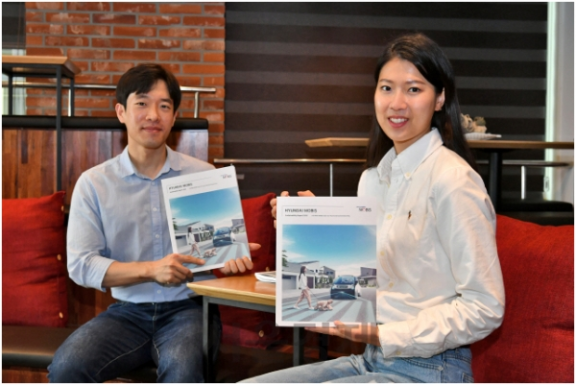Hyundai Mobis to Invest 1 Tril. Won in R&D This Year

The 2020 Sustainability Report published by Hyundai Mobis on May 27
Hyundai Mobis will invest about 1 trillion won in about 2,000 R&D projects in 2020, according to the company’s latest sustainability report published on May 27.
The report said that Hyundai Mobis will invest 983.1 billion won in R&D this year, which is a 60 percent increase from 625.8 billion won in 2015. The number of the company’s R&D personnel is expected to top 5,000 for the first time this year. Hyundai Mobis spent 234.2 billion won on R&D in the first quarter of 2020, when COVID-19 was rampant.
Hyundai Mobis’ move to strengthen R&D is due to the rapid transition of the global auto market toward future cars such as self-driving and electric vehicles. The company believes that it can vanish at any time without technology development, although it is currently ranked as the seventh-largest auto parts maker in the world.
The report presents three goals for sustainability: creating new growth engines in key areas such as autonomous driving and electrification, eco-friendly management to preemptively responds to environmental regulations, and the creation of values for communities to coexist with stakeholders.
In 2019, Hyundai Mobis participated in establishing a joint venture with U.S. self-driving company Aptive and made investment in Velodyne, a global leader in LiDAR technology. It invested in leading company Velodine. This year, the company will expand technical cooperation with startups in the automotive infotainment and Advanced Driver Assistance System (ADAS) sectors, focusing on “Mobis Ventures” operating in Silicon Valley and Shenzhen, China. In addition, it will respond quickly to the strengthening of environmental regulations in major markets such as Europe and North America. In addition to upgrading its own energy management system, it also actively supports the establishment of environmental systems by its partners. This year, the nation’s greenhouse gas emissions will be cut by nearly 3 percent from a target set by the emission trading system.
Hyundai Mobis is also planning to make its major production plants powered by solar power generation and energy storage systems (ESSs) in 2025. Its will is to transform itself from an energy consumer into an energy “prosumer” that can produce and consume energy simultaneously.